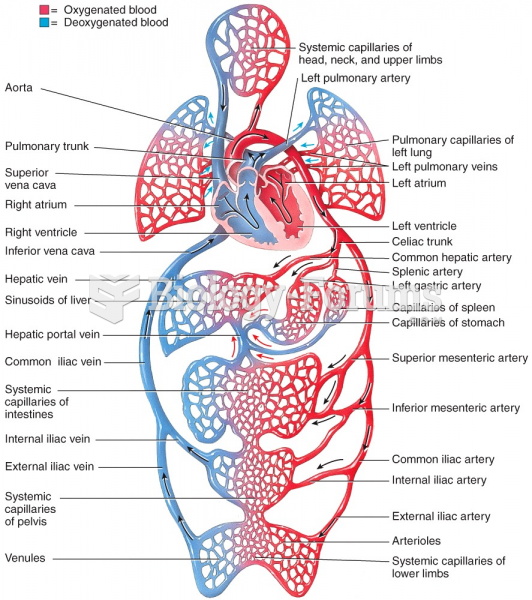Answer to Question 1
Correct Answer: 2, 3
Rationale 1: Oral is incorrect because this is the enteral route.
Rationale 2: Intravenous infusion is given directly into the vein and is the parenteral route.
Rationale 3: Intramuscular injection is given directly into the muscle and is the parenteral route.
Rationale 4: Vaginal is incorrect because this is the topical route.
Rationale 5: Sublingual is incorrect because this is administered under the tongue and not through the parenteral route.
Global Rationale: Intravenous infusion is given directly into the vein and is the parenteral route. Intramuscular injection is given directly into the muscle and is the pareteral route. Oral is incorrect because this is the enteral route. Vaginal is incorrect because this is the topical route. Sublingual is incorrect because this is administered under the tongue and not through the parenteral route.
Answer to Question 2
Correct Answer: 2
Rationale 1: The tablet should be crushed and given in either pudding or applesauce is incorrect because this method of medication administration is often used to help a client who has difficulty swallowing pills. The buccal route would have the nurse place the tablet between the cheek and gum.
Rationale 2: A medication that is given via the buccal route would have the tablet, capsule, lozenge, or troche placed in the oral cavity between the gum and the cheek.
Rationale 3: The tablet is placed under the tongue and allowed to dissolve slowly is incorrect because this describes the sublingual route.
Rationale 4: This drug should be applied directly to the skin is incorrect because this describes a dermatological preparation.
Global Rationale: A medication that is given via the buccal route would have the tablet, capsule, lozenge, or troche is placed in the oral cavity between the gum and the cheek. The tablet should be crushed and given in either pudding or applesauce is incorrect because this method of medication administration is often used to help a client who has difficulty swallowing pills. The buccal route would have the nurse place the tablet between the cheek and gum. The tablet is placed under the tongue and allowed to dissolve slowly is incorrect because this describes the sublingual route. This drug should be applied directly to the skin is incorrect because this describes a dermatological preparation.







